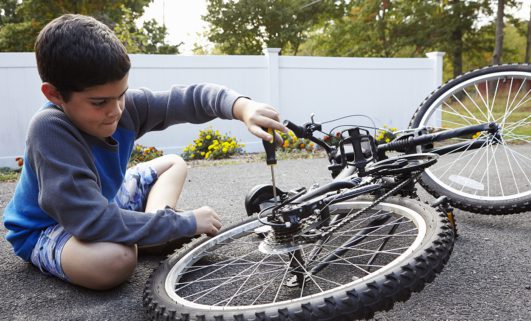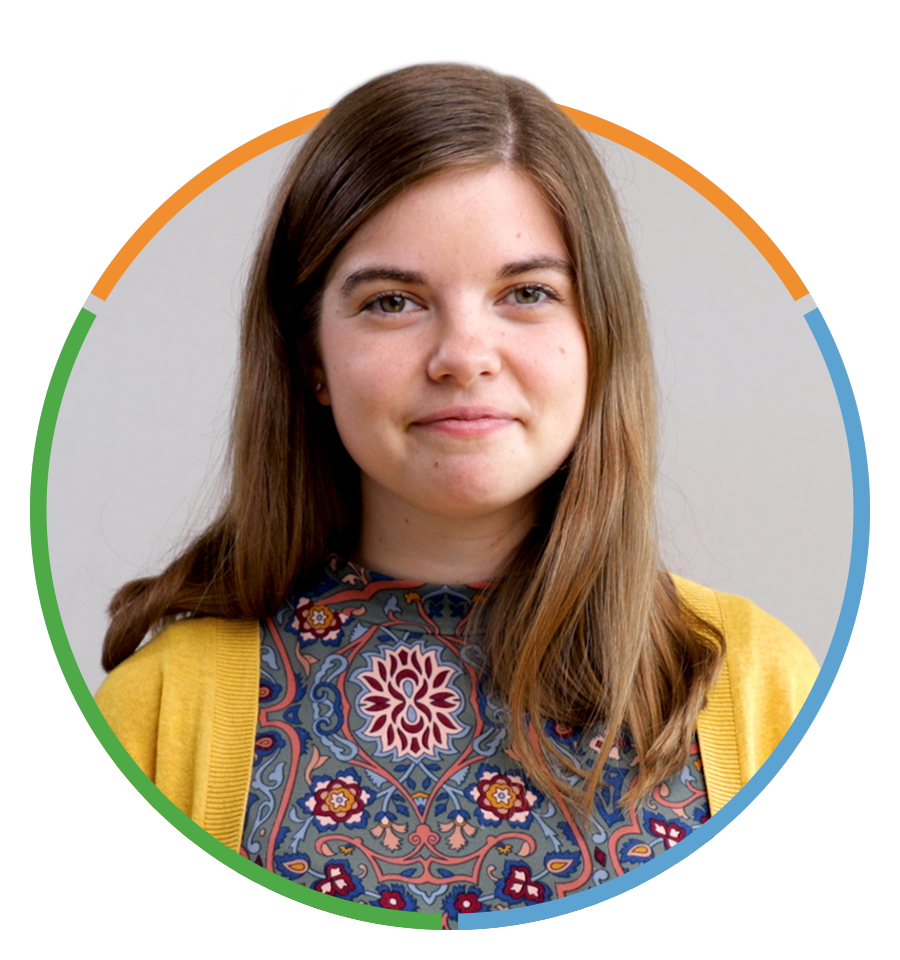How Earning a Bike Can Change a Life
Avery West
Director of Community Initiatives
Read more from Avery
When Becky and Tim O’Mara moved into Adair Park in Southwest Atlanta in 2008, they had no big dreams for neighborhood revitalization. “We were just looking for a cheap house,” Becky remembers, laughing.
The couple quickly got to know the neighborhood kids, even helping out with the occasional science fair project. “Tim was always at people’s houses, talking to kids, talking to their parents. That’s just his personality,” his wife explains.
When Britney, one of the neighborhood girls, showed up one day with two flat tires on her bike, Becky and Tim asked if she’d like to earn the money for the repair. After asking the girl to help with a few chores around the yard, the O’Mara’s surprised Brittney with a new bike.
The next day, Britney was back—this time with a couple of friends.
The couple started collecting old bikes from friends and fixing them up. Neighborhood kids could earn a bike in exchange for picking up 5 bags of trash around the neighborhood. Not only did the children get a chance to create beauty in their environment, but they also spent their days flying around on bikes—which left less time to get into trouble with their older family members.
Becky and Tim continued trading bikes for neighborhood work, and they began to gather in the driveway a few days a week for bike repairs.
“Eventually,” Becky shared, “We ran out of trash.”
Bearings Bike Works, as it’s now known, moved to the basement of an old auto repair shop—a property which they then bought in 2017. There, kids can drop in on Tuesday, Thursday, and Saturday afternoons, and earn one star for each hour they spend learning about, building, and repairing bikes. “We just use a good old-fashioned star chart so the kids can see their progress,” Becky says. After 3 or 4 weeks, most kids have earned enough stars – about 12 or 15 – to buy a bike of their choosing.
Interested students can continue learning about more complex bike components, like gear systems. While the regular drop-in program is designed for 6-17 year olds, high schoolers and young adults can apply for a paid summer internship where they learn the soft skills and confidence they’ll need in the workforce. Through this program, youth get advanced mechanical training and exposure to “sister trades” like auto repair and construction work. While many high school graduates either go to college or remain unemployed, Bearing Bike Works equips kids to thrive in the skilled trades.
The O’Maras found that “exercising that work muscle” through building and repairing bikes especially helped kids who struggled in school. Working alongside staff members, these youth learn communication, problem solving, perseverance, and how to ask for help. Local schools now send their toughest kids to Bearings, and are noticing behavioral improvements both at school and at home.
Becky explains that organizations who want to start something similar often get overwhelmed by Bearings’ built-out programs and large facility. “That’s not where we started though,” she says, “We started with bikes and trash bags.” The simple act of exchange was what fostered the kids’ work ethic and sense of independence—things they will keep for the rest of their lives.
Like any organization, Bearings encountered bumps along the way. For instance, they’ve found that taking a bunch of kids out on a bike ride is too difficult to manage. Additionally, they learned that the regular bike co-op model—pulling a used bike out of a pile and giving it to a kid to repair—simply doesn’t work in their context. “It requires too much oversight and hands-on involvement. This is the biggest reason we systematized how kids learn to build bikes and control the process as much as possible. It’s the most scalable,” Becky says.
The team at Bearings makes sure to keep families involved when their children join the program. Their enrollment form outlines expectations for behavior and asks for parental consent. “Our Outreach Coordinator calls new families or sometimes visits the home to introduce himself, answer questions, and tell them more about the intent of the program,” Becky explains, “And if people get me when they call, I usually go into detail about our hopes for impact ‘beyond the bike’.”
Always careful not to replace the role that parents have in their childrens’ lives, Becky and Tim make sure to seek out relationships with the families of the kids who drop by. When talking to a mom, for instance, the couple will intentionally brag about how well her child is doing in the program, affirming her role in raising such a great kid.
Their annual “Bearings Bike Along” event draws donors, community members, program participants and families together. Becky shares, “Last year this was pretty well attended by families! It’s a “recreational ride” on the Beltline trail here with food and festival activities afterwards for kids. We are looking to expand in ways this year that create spaces specifically for parents to come to with their kids.”
At its core, Bearings Bike Works exists for the sake of community. Becky, Tim, and their team of five intentionally build relationships with each of the kids who drop by. Trash pickup days, bikes, mechanical training—all these are just tools to get to know kids and their families. For Bearings, “it’s never just been about the bikes.”
Watch Bearings Bike Works explain their charity model in their own words.
Want to learn more about Bearings Bike Works and how you might start a similar effort in your community? True Charity Network members can find their contact information in the Member’s Directory.



